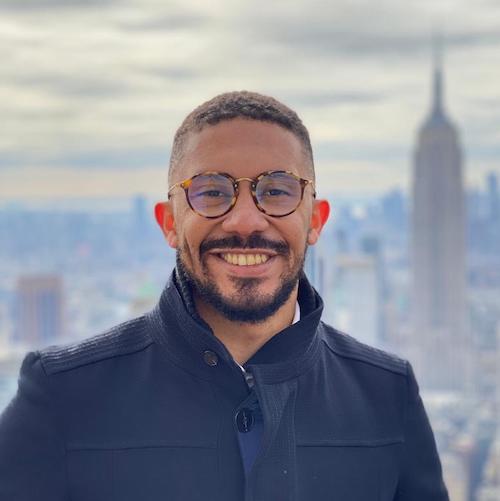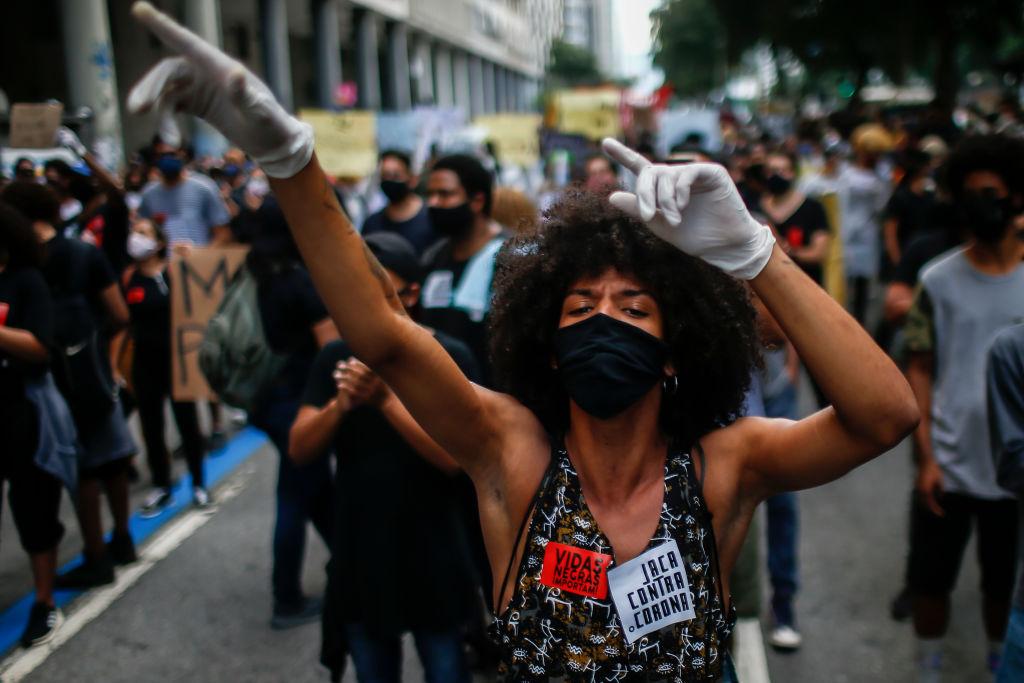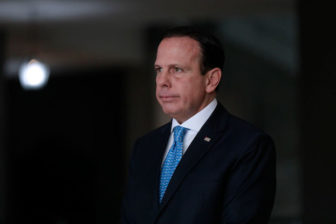SÃO PAULO – I watch from Brazil as anti-racism protests flourish across the United States, and my heart fills with hope.
I think about the history of deep-rooted racism and resistance our countries share, despite the differences. As the legal scholar Tanya Hernández pointed out in her book Racial Subordination in Latin America, while the United States established a legal system of segregation (the Jim Crow laws that lasted until the second half of the 20th century), Brazil built up its own version of Jim Crow through an official policy of whitening its population. Through a variety of legal regulations fostering European immigration, giving preference to white people in access to land and to the job market, Brazil has managed to maintain a racial hierarchy with pervasive effects that last until today.
Black protest is part of the historical imagery black people in the U.S. and in Brazil share, as much as racial violence is as well. Black protest fired the streets of “Red Summer” in Chicago in 1919, right after the Spanish Flu of 1918. It fired the streets of Birmingham in 1963 demanding civil rights. It fired the streets of several cities in the U.S. since 2013 with the nationwide Black Lives Matter Movement after the killings of Trayvon Martin in February 2012, as well as Michael Brown and Eric Garner in 2014.
In Brazil, the modern black movement has existed since the 1930s, and street protests have been a key political strategy – in particular since the 1970s. With a major protest in São Paulo in 1978, black people defied the military dictatorship that would last until 1985. Upon the birth of Brazil’s democracy in 1988, black people across the country took up to the streets in one of the largest protests in Brazilian history, claiming that the abolition of slavery just 100 years earlier was inconclusive, demanding a democracy of equals.
Today, with Jair Bolsonaro’s election as president in 2018, black groups have joined efforts and established the Black Coalition for Rights (Coalizão Negra por Direitos), a key player in advancing equal rights in the current hard times. Just a short time since its inception, the Coalition has managed to block in the national legislature the reversal of affirmative action policies and campaigned successfully against legislative bills seeking to give larger self-defense protections to police officers.
Protests are not without reason. Anti-blackness violence has reached pandemic levels in both countries. Numbers of police killings in Brazil and the United States are at striking levels, and on the rise. In 2019, 1,004 people were shot and killed by the police in the United States, from 992 in 2018. The number of people killed by police in Brazil last year was at least six times larger than that, even as the killing of police officers themselves dropped by half in 2019. Only in the state of Rio de Janeiro, police killed 1,810 people – roughly five per day, and almost twice the number of police killings documented in the entire United States. 80% of the people killed by Rio’s police in the first half of 2019 were black.
When protesters in the United States shout “No justice, no peace!” they claim for themselves the founding ideals of U.S. democracy: that all men and women are created equal. In Brazil, protests often walk in silence remembering the deaths of black people or they shout “democracy!”. Social movements’ theories call such endeavors a ‘repertoire of contention’: protesters articulate a view of the future, not only of the present.
Also, Brazil and the U.S share a similar pattern of impunity. In the U.S., a system protects police through a series of obstacles to make them accountable, such as resistance of police unions and biased administrative appeal procedures. In 20 years of work with the Minneapolis Police Department, Derek Chauvin – the police officer who asphyxiated George Floyd with his knees – had already faced at least 17 misconduct complaints, with virtually no consequences for him. Data collected by the St. Paul Pioneer Press has shown that impunity is the rule rather than exception: 46% of the time, law enforcement and correction officers were reinstated after appeal for misconduct in Minnesota between 2014 and 2019.
In Brazil a similar pattern of impunity is seen, with no serious accountability in place for police misconduct. Administrative investigations of police misconduct are conducted by the police itself, with barely any transparency and no independent evidence-seeking. Public Attorney’s Offices which has the constitutional mandate of conducting external oversight of the police activities generally buy the police version of misconducts and killings, making police impunity the rule. In addition, accountability of police commanders and political actors such as governors for disastrous police operations they had ordered are also out of sight in the current policy debates.
Yet, protests against police violence are not only about police killings; protesters read those killings as part of a necropolitics which aims to destroy black bodies, either by killing them directly or letting them die. Necropolitics, a term coined by the Cameroonian intellectual Achille Mbembe based on Paul-Michel Foucault, captures the wide range of the control of black bodies in the U.S. and in Brazil. Police is only one of such control mechanisms, although a prominent one. Access to housing, education, health, civil rights are other areas of struggle for black people. Since the Slave Patrols that gave birth to policing structures in the South of the United States in the 18th century, the lives of black folks have been a fight for survival, and dignity.
Once again, black people in the Americas go to the streets to demand a real democracy. Or a democracy, period. As Nikole Hannah-Jones wrote in the New York Times 1619 Project, U.S. “democracy’s founding ideals were false when they were written. Americans have fought to make them true.” In Brazil, black people’s experience has not lived up to the vision that the abolition of slavery would bring equality. Today, as much as yesterday, black people and their white allies are out there on the streets stating that a true democracy is built up with racial justice.
—
Amparo is a lawyer and professor at Fundação Getúlio Vargas Law School in São Paulo, Brazil









